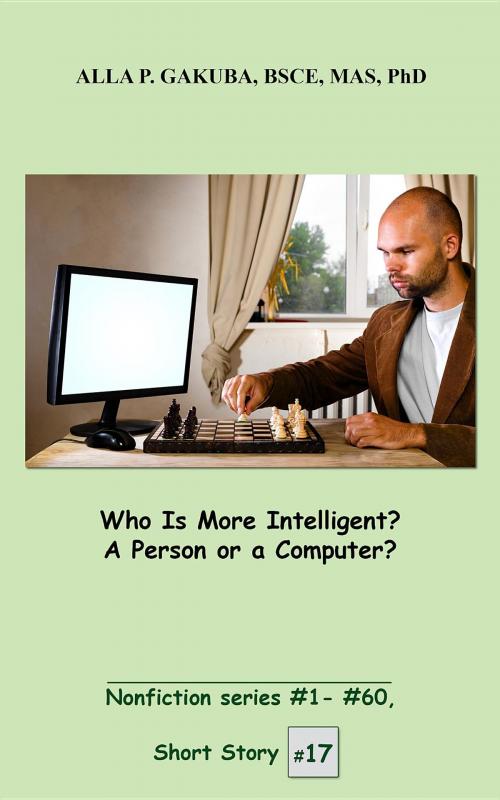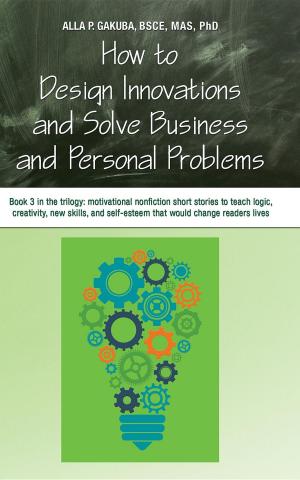Who Is More Intelligent? A Person or a Computer?
SHORT STORY # 17. Nonfiction series #1- # 60
Nonfiction, Reference & Language, Education & Teaching, Educational Theory, Adult & Continuing Education, Teaching, Computers & Technology, Science & Nature, Technology, Engineering| Author: | Alla P. Gakuba | ISBN: | 9781943131471 |
| Publisher: | Know-How Skills | Publication: | December 3, 2016 |
| Imprint: | Know-How Skills | Language: | English |
| Author: | Alla P. Gakuba |
| ISBN: | 9781943131471 |
| Publisher: | Know-How Skills |
| Publication: | December 3, 2016 |
| Imprint: | Know-How Skills |
| Language: | English |
It is a common knowledge that computers improved the quality of peoples life. Computers are one type of technology that contributed to total technological progress in the 2nd part of the 20th century. Technological progress even increased the peoples life expectancy.
At the beginning of the 20th century, for example in the USA, the life expectancy was 45 years. The majority of people were farmers performing hard manual jobs on their farms. Then later, a technological progress began that increased the peoples’ life expectancy to 75-85 years. Computers liberated people from performing tedious and monotones tasks. That is probably why today the majority of people think that a computer is much more intelligent than a person is. This is absolutely wrong. So, who is more intelligent? A person or a compute? Please find a correct answer in this story.
It is a common knowledge that computers improved the quality of peoples life. Computers are one type of technology that contributed to total technological progress in the 2nd part of the 20th century. Technological progress even increased the peoples life expectancy.
At the beginning of the 20th century, for example in the USA, the life expectancy was 45 years. The majority of people were farmers performing hard manual jobs on their farms. Then later, a technological progress began that increased the peoples’ life expectancy to 75-85 years. Computers liberated people from performing tedious and monotones tasks. That is probably why today the majority of people think that a computer is much more intelligent than a person is. This is absolutely wrong. So, who is more intelligent? A person or a compute? Please find a correct answer in this story.















